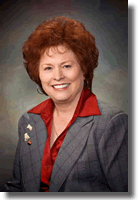[Source: Norman Oder, Library Journal] — In a decision that has drawn deep concern from the public, the Arizona State Library, Archives, and Public Records has closed regular public access to the $38 million Polly Rosenbaum State Archives and History Building, which opened last fall and was dedicated in mid-January, according to the Arizona Republic. GladysAnn Wells, state librarian, said that the closure was the only solution to a nearly 75% cut in the agency’s remaining budget for the rest of the fiscal year, which ends June 30. The reduction is $1.45 million out of $2 million, and archives staff have been cut from13 to 3. The state research library and museum have cut hours, as well.
Those researchers who wish to access books, documents, and other resources will be able to make appointments to use the new building. “I’m hoping something is going to happen so that we can re-open it,” Wells told the Phoenix New Times, which noted that the building had had about ten to 25 visitors a day.
“My husband and I were fortunate to have just finished the extensive research for our history of east-central Arizona before the archives closed,” wrote one commenter on the newspaper’s web site. “Our book is richer and deeper because of the nuggets found there.”
“I can’t believe that it has been closed completely,” another complained. “Cut down the hours, ask for volunteers, but to cut off history to the people of Arizona who are doing research and writing history is inexcusable.”



